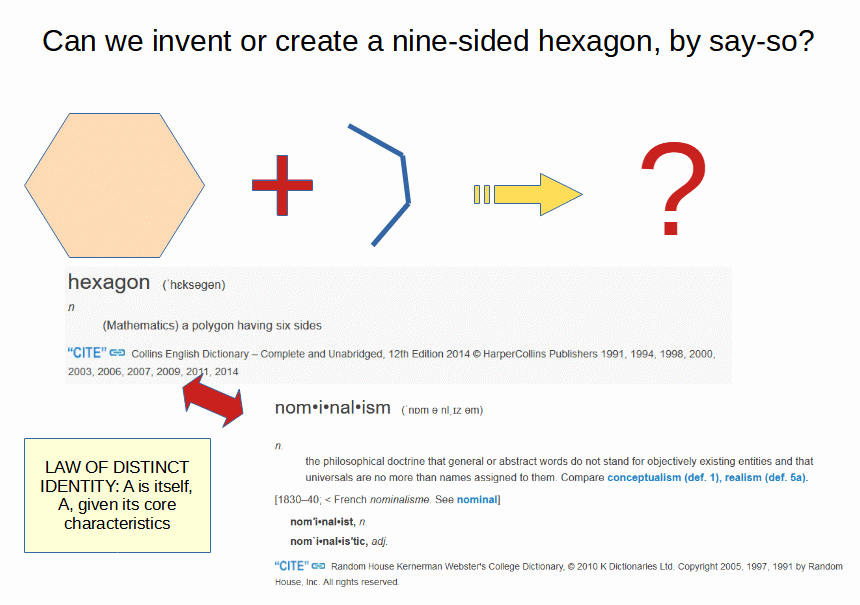One of the many fundamental errors of nominalism is to confuse labels with logic of being substance.
To clarify the matter, let us ponder:

As was noted in the ongoing defending thread:
KF, 839: As a start point for rethinking, please, show us a nine sided hexagon.
(What, you can’t, isn’t the term hexagon just a word we can apply as we please, rewriting the dictionary at will, there is no such thing as a nature so there is no difference. So, on such radical nominalism, there is no difference between truth and error, truthfulness and willful deceit, justice and injustice, male and female, knowledge and myth, indoctrination and education, acquitting the innocent and knowingly condemning such, sound policing and the gestapo. See the nihilistic pattern?)
Believe it or not, there are many otherwise vexed issues that resolve themselves once we recognise this issue. END